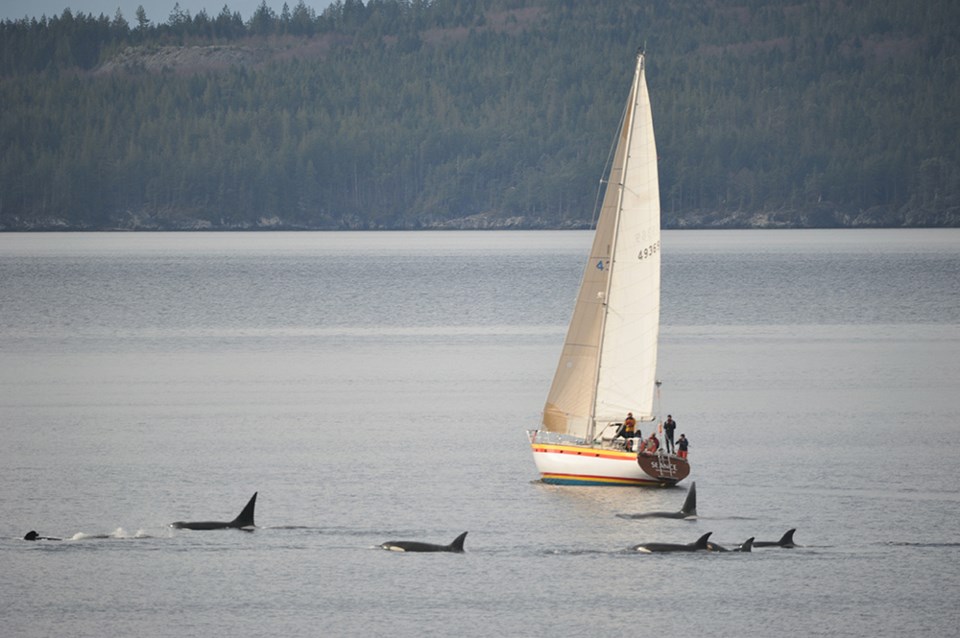For the sixth consecutive year, the Government of Canada is implementing measures to try and protect southern resident killer whales and restore their population, according to a June 3 media release.
Also known as southern resident orcas, the iconic mammals are fish eaters with a preference for Chinook. According to whaletrail.org, resident orca pods are usually multigenerational; currently there are 75 individuals in the population: 34 in L pod, 25 in J pod and 16 in K pod. J pod is probably the most familiar with people in BC, as that group tends to stay in the Strait of Georgia, which includes qathet region coastlines, and southern Gulf Islands area year-round.
Federal minister of natural resources Jonathan Wilkinson announced a series of measures, which came into effect June 1, as well as an investment of $3.5 million toward protecting southern resident killer whales, and the renewal of a five-year conservation agreement signed between the Government of Canada and the marine transportation industry.
Vessel strikes, noise disturbance and the decrease in salmon numbers are the main reasons for the decrease in resident orca population. There is a continued requirement for vessels to stay at least 400 metres away from all killer whales, and a prohibition from impeding the path of all killer whales in southern BC coastal waters between Campbell River and Ucluelet, including Barkley Sound and Howe Sound. This is now in effect until May 31, 2025, according to the release.
An agreement with local whale watching and ecotourism industry partners to abstain from offering or promoting tours viewing southern resident killer whales is in place. Wilkinson also announced closures for commercial and recreational salmon fisheries in key southern resident killer whale foraging areas in 2024 and 2025.
The media release stated that Transport Canada will provide $3.2 million over two years to Vancouver Fraser Port Authority to continue the Enhancing Cetacean Habitat and Observation Program.
Transport Canada will also provide $300,000 to Ocean Wise to support its Whale Report Alert System, which notifies large commercial vessels when they may be near whales through an online app. This enables vessels to take appropriate actions, including monitoring for whale presence and/or slowing the vessel down.
Fisheries and Oceans Canada has launched an online national public survey, open until September 3, 2024, to consult Canadians on potential amendments to the marine mammal regulations.
"Any potential changes to the marine mammal regulations will be informed by First Nations, stakeholders and public feedback, as part of the consultation process, as well as the best available scientific advice and information," the media release stated.
Join the Peak’s email list for the top headlines right in your inbox Monday to Friday.




